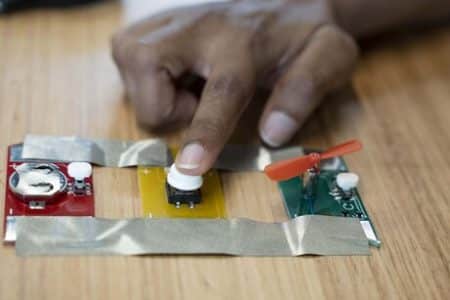For people with intellectual disabilities, Monash University researchers have created customised electronic toolkits to improve STEM knowledge, logical thinking, and creativity.
TronicBoards are a series of customizable color-coded printed circuit boards with large controllers and recognisable symbols, designed by researchers at the Faculty of Information Technology (IT) to make circuit construction easier for people of all intellectual levels.

Hashini Senaratne, the lead researcher and PhD candidate, noted that a variety of simple electronics toolkits are becoming more widely available to enable individuals engage with technology. However, people with intellectual disabilities, who have a variety of cognitive and physical difficulties, typically find them inaccessible.
“We developed TronicBoards as a curated set of electronic modules to address this gap in accessibility. These boards can be combined with conductive tape and other electronic components, including LEDs, vibration motors, buzzers and push buttons etc. to create and demonstrate working electronic circuits,” Ms Senaratne said.
Workshops led by co-author Dr. Kirsten Ellis with 148 persons with intellectual disabilities influenced the creation of TronicBoards. Researchers and support workers from several disability support organisations guided and assisted the participants.
“We found that the participants, with varying degrees of support, were able to logically interact with the boards, complete workable circuits and in some cases were also able to add creativity and craft personally meaningful objects like adding lights to a mirror and a music box that can change melodies with a slide switch.”
The overarching purpose of TronicBoards, according to research co-author Dr Swamy Ananthanarayan, is to allow marginalised populations to move from being passive recipients to actively engaging in the design of various technologies.
“We envision a future where the tools and systems are flexible enough so people living with disabilities can craft smart artefacts and potentially their own assistive devices independently or with limited support from caregivers and disability support workers,” Dr Ananthanarayan said.
Data was collected during the workshops in order to improve future TronicBoard iterations. The researchers are planning on including braille into future iterations of the boards to improve accessibility for those with vision impairments. The findings of the study will be presented at the ACM CHI Conference on Human Factors in Computing Systems, which will take place in New Orleans, USA, from April 30 to May 5 2022.






